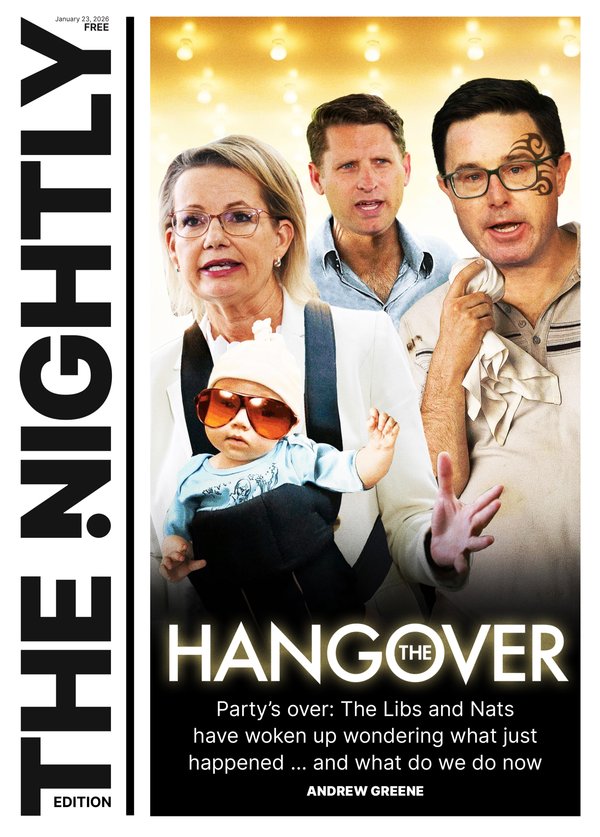Liam Payne: Working with addicts taught me addiction is a choice

You don’t have to be a One Direction fan to recognise Liam Payne’s death aged 31 is a tragedy. Any young life cut short, particularly the way his was, is immensely sad. And the impact on his family is immeasurable, not least on his seven-year-old son, who will now grow up without a father.
I’ve seen so many young adults like Liam lose their lives to addiction, and it is heartbreaking. It’s such a waste.
According to Argentinian media, the post-mortem revealed he had consumed a cocktail of drugs, including something called ‘pink cocaine’ – containing methamphetamine, ketamine and MDMA – along with crack cocaine and benzodiazepine.
Sign up to The Nightly's newsletters.
Get the first look at the digital newspaper, curated daily stories and breaking headlines delivered to your inbox.
By continuing you agree to our Terms and Privacy Policy.
Since Liam’s untimely death, there’s been a sudden interest in ‘pink cocaine’. However, for those of us who have worked in A&E or in substance misuse services, this drug is not new. It’s a dangerous substance made of a combination of two or more drugs, so users have no real idea what is in it or in what concentration.
Despite its name, it doesn’t usually contain cocaine. Taking this drug is like Russian roulette when it comes to what you get – and what the experience is like. I’ve seen several people end up in hospital with severe psychosis and others who have stopped breathing or had seizures.
If we can take anything from Liam’s shocking death, it’s increased awareness of the dangers of this noxious, unpredictable substance.
For me, the real tragedy is how Liam battled his addiction for so long, only to finally succumb. While some can cope with all kinds of turmoil in their life, for others there is a lifelong search for respite from their demons, and drugs, I’m sorry to say, give the illusion of offering just that.
I have spent many years working in substance misuse services, and yes, I am tough when it comes to addiction. You can be kind, thoughtful and compassionate while also acknowledging that addiction is a choice. In my clinics, we can explore reasons why you might be an addict, but these are not excuses. I’m firm with my patients, but do appreciate t h a t o n c e addiction has taken hold, it can grip so hard many can’t imagine ever being free of it. I understand that an addict’s family will want to believe their loved one was targeted by dealers. That they are the innocent victim and would be clean if it weren’t for others.
But to me, this shows a misunderstanding of addiction. Drug dealers rarely target people like this. You must seek them out. Dealers are businesspeople, say no a few times, and they move on, especially when there are plenty of other willing customers.

And let’s not forget peer pressure, the so-called friends encouraging you. Every addict wants someone else to share their drugs or alcohol with. It helps them deny that they have a problem. If you’re wealthy, others often see you as a cash cow – a way of funding their own habits. But again, hangers-ons soon drift away if you don’t produce the goods – they’re addicts, after all, and the only thing they’re really interested in is their next fix. The problem is that the addiction is still there, and if someone comes along offering a fix at the wrong moment, boom, you can be right back where you started.
This is the real tragedy – people trying desperately to be free from the steely grip of addiction, only to succumb. To truly escape, the reality is you must understand why you became an addict. This is what I say to patients and their families – getting clean is only the beginning.
Once you’ve managed to stop using substances, the real work starts. This often involves intense and long psychotherapy exploring why you were seeking to anaesthetise yourself. It’s a painful process, bringing up and confronting things people have spent years burying.
Often, a person will become abstinent, only for this next step to be too painful and upsetting. But if you fail to exorcise the demons underlying the addiction, you are destined to go on an awful journey of rehabilitation, abstinence and relapse.
Every addict I’ve met wishes they’d never started. If one good thing can come out of Liam’s tragedy, it’s that a generation of his fans will see the awfulness of addiction and think twice before saying yes to illicit substances.
